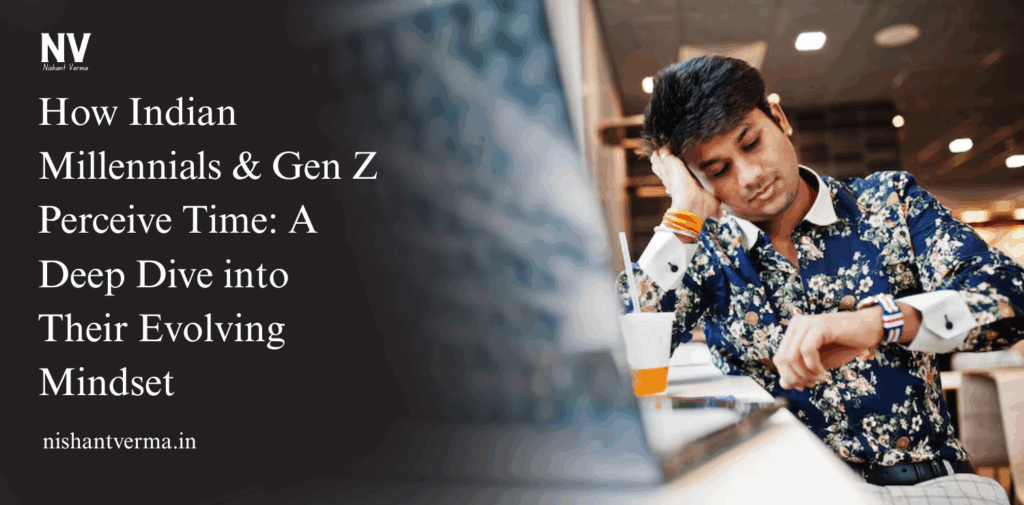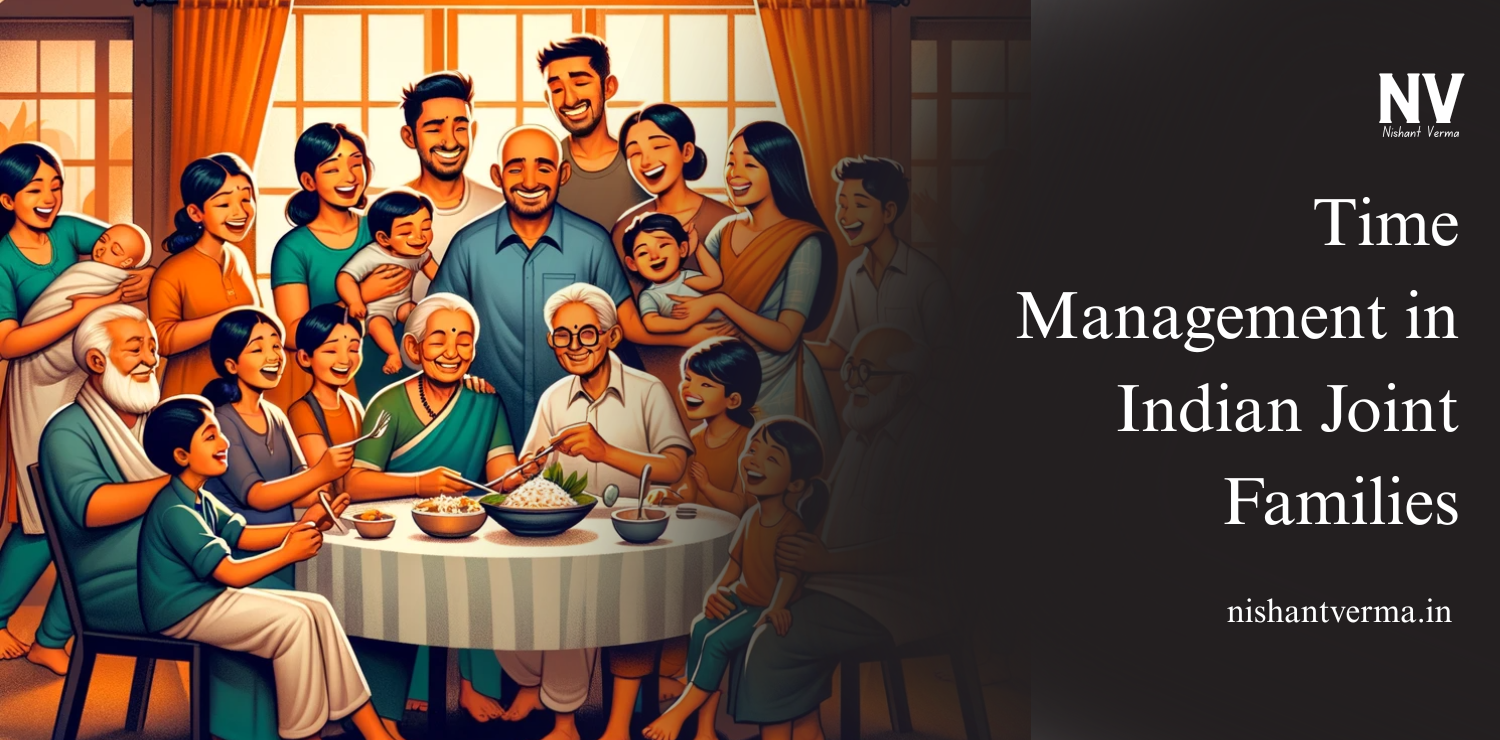In today’s fast-changing world, the way people view time has also changed. Especially in India, where the culture is rich with tradition yet rapidly adapting to modernity, Millennials & Gen Z are developing a very different relationship with time than the generations before them. This article explores how these young Indians perceive time, how it affects their daily lives, work, relationships, and overall mindset. If you’re a Millennial or Gen Z, or someone trying to understand them better, this article will give you some real insights.
Millennials & Gen Z : Generational Gap
To begin with, let’s understand who we are talking about. Millennials are people born roughly between 1981 and 1996, while Gen Z includes those born between 1997 and 2012. Both these generations in India have grown up in very different environments than their parents. While their parents may have grown up with landline phones and Doordarshan, Millennials saw the rise of the internet, and Gen Z grew up with smartphones in their hands.
This exposure to technology has heavily influenced how they perceive time. For previous generations, life was more about patience and long-term planning. But for Millennials and Gen Z, life is faster, more immediate, and more dynamic. They want things quickly, they expect results faster, and they measure time differently—not just by the clock, but by experiences, opportunities, and achievements.

Time as a Resource, Not Just a Clock
For Indian Millennials and Gen Z, time is not just something that passes—it’s a resource that needs to be managed well. With the pressure of competition, social media, personal goals, and career growth, every moment counts.
Take for example the rise of productivity tools like Google Calendar, Notion, and time management apps. Many young Indians are using these tools to squeeze out the most from their day. Whether it’s attending online courses, managing side hustles, or maintaining a fitness routine, they want to use time smartly. The concept of “time is money” is no longer just a business phrase, but something deeply embedded in their daily life.
However, this focus on productivity also leads to burnout. Many young Indians find themselves feeling guilty for “wasting time,” even when they are resting. The idea of taking a break often feels like falling behind. This has created a new kind of stress that earlier generations rarely experienced.
Social Media and the Fast-Paced Lifestyle
Another major factor that has changed how Indian Millennials and Gen Z perceive time is social media. Scrolling through Instagram, YouTube Shorts, or Reels gives the illusion that life is moving very fast. You see someone getting fit in 30 days, another person becoming a millionaire at 25, and yet another traveling the world while working remotely. All this makes young people feel like they need to achieve everything, and that too, quickly.
This pressure leads to the feeling that time is slipping away. Many young Indians in their 20s and early 30s talk about “not having enough time” to figure out their life, even though they are still quite young. Social media adds fuel to this anxiety, constantly reminding them of what they should have achieved by now.
On the flip side, Gen Z is also more open to taking breaks and valuing mental health. They are beginning to challenge the idea that being busy all the time is a sign of success. You’ll often hear phrases like “slow living,” “mental peace,” and “digital detox” among Gen Z circles, showing a shift in how time is valued—not just in terms of output but also well-being.

Work, Hustle, and the Time Dilemma
The Indian job market is another area where the perception of time is changing. For older generations, staying in one job for decades was common and respected. But today’s youth switch jobs more frequently, not because they are disloyal, but because they value time and growth. They don’t want to spend years waiting for a promotion or recognition.
Millennials started the trend of side hustles, freelancing, and startup culture, while Gen Z is taking it even further. From running Instagram pages to becoming YouTubers and building businesses from their bedrooms, young Indians are redefining how time and work are connected.
However, this also means that the line between personal time and work time is blurred. Working late nights, checking emails on weekends, or always being “online” is now normal. Time has become more fluid, and for many, it’s hard to separate work hours from free time. While this allows flexibility, it also brings challenges in managing stress and maintaining work-life balance.
Relationships and Time: Instant Yet Distant
When it comes to relationships, Millennials and Gen Z again have a unique way of dealing with time. Earlier, relationships grew slowly—letters, long phone calls, or weekend meet-ups. Today, it’s all about instant messaging, video calls, and dating apps. People fall in love faster, form friendships quicker, and sometimes move on just as fast.
But this speed also brings a lack of depth sometimes. Some relationships don’t get the time they need to grow. There’s also a lot of FOMO (fear of missing out), leading people to constantly search for better friends, better partners, and better experiences.
At the same time, Gen Z is becoming more aware of emotional needs and mental health. They are not afraid to take time off from relationships, prioritize healing, or seek therapy. The idea that “everything takes time” is slowly making a comeback, but with a new understanding.

The Shift Towards Mindfulness and Balance
Interestingly, while everything seems to be moving fast, there’s also a growing movement towards slowing down. Practices like yoga, meditation, journaling, and spending time in nature are becoming popular again, especially among young Indians living in cities.
Many Millennials and Gen Z are now realizing that chasing every goal non-stop is not the answer. They are looking for meaning in what they do, not just money or fame. This shows that while their perception of time is fast and productive, they also want it to be meaningful and peaceful.
The concept of “quality time” is now gaining importance—not just in relationships, but in how they spend their day. Whether it’s a solo trip, cooking a meal, or just sitting in silence, these small moments are being seen as valuable uses of time.
Conclusion: A Generation Redefining Time
Indian Millennials & Gen Z are not just following the clock—they are rewriting what time means to them. For them, it’s a blend of speed and stillness, ambition and awareness, hustle and healing. They are under pressure to succeed quickly, but also conscious of the need for peace. Their unique perception of time reflects the times they live in—a world of endless possibilities, digital speed, and evolving priorities.
In the end, time for them is not just about ticking hours, but about creating experiences, finding purpose, and living life on their own terms. They are not afraid to challenge old beliefs, experiment with new lifestyles, and make the most of every moment. And in doing so, they are shaping not just their own future, but also the future of India.
If you’re a young Indian, remember—your relationship with time is your own. Whether you move fast or slow, what matters is that you make your time meaningful.




